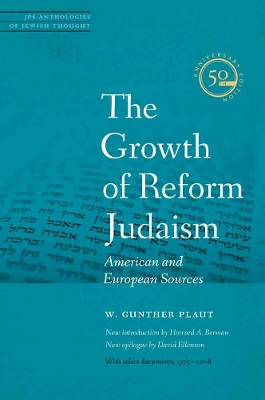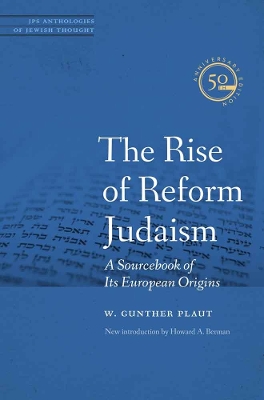JPS Anthologies of Jewish Thought
2 total works
This fiftieth anniversary edition of W. Gunther Plaut's classic second volume on the history of the Jewish Reform Movement is a sourcebook of the original writings that shaped the second century of organized liberal Judaism. The Growth of Reform Judaism features a new introduction, a new epilogue, and important additional primary sources documenting the profound changes of the last fifty years.
Although the emphasis in this volume is chiefly on the American scene, where the movement had its most notable advances, selections of representative liberal Jewish thought in Europe and to a lesser degree in Israel are included as well. These selections help us to understand the emergence and character, problems and tensions of Reform Judaism as it developed and grew in modern times. In addition to the primary texts new to this edition, David Ellenson's epilogue considers the developments of the last fifty years that have continued to shape the course of Reform Judaism.
This fiftieth anniversary edition of W. Gunther Plaut's classic volume on the beginnings of the Jewish Reform Movement is updated with a new introduction by Howard A. Berman. The Rise of Reform Judaism covers the first one hundred years of the movement, from the time of the eighteenth-century Jewish Enlightenment leader Moses Mendelssohn to the conclusion of the Augsburg synod in 1871.
In these pages the founders who established liberal Judaism speak for themselves through their journals and pamphlets, books and sermons, petitions and resolutions, and public arguments and disputations. Each selection includes Plaut's brief introduction and sketch of the reformer. Important topics within Judaism are addressed in these writings: philosophy and theology, religious practice, synagogue services, and personal life, as well as controversies on the permissibility of organ music, the introduction of the sermon, the nature of circumcision, the observance of the Sabbath, the rights of women, and the authenticity of the Bible.

